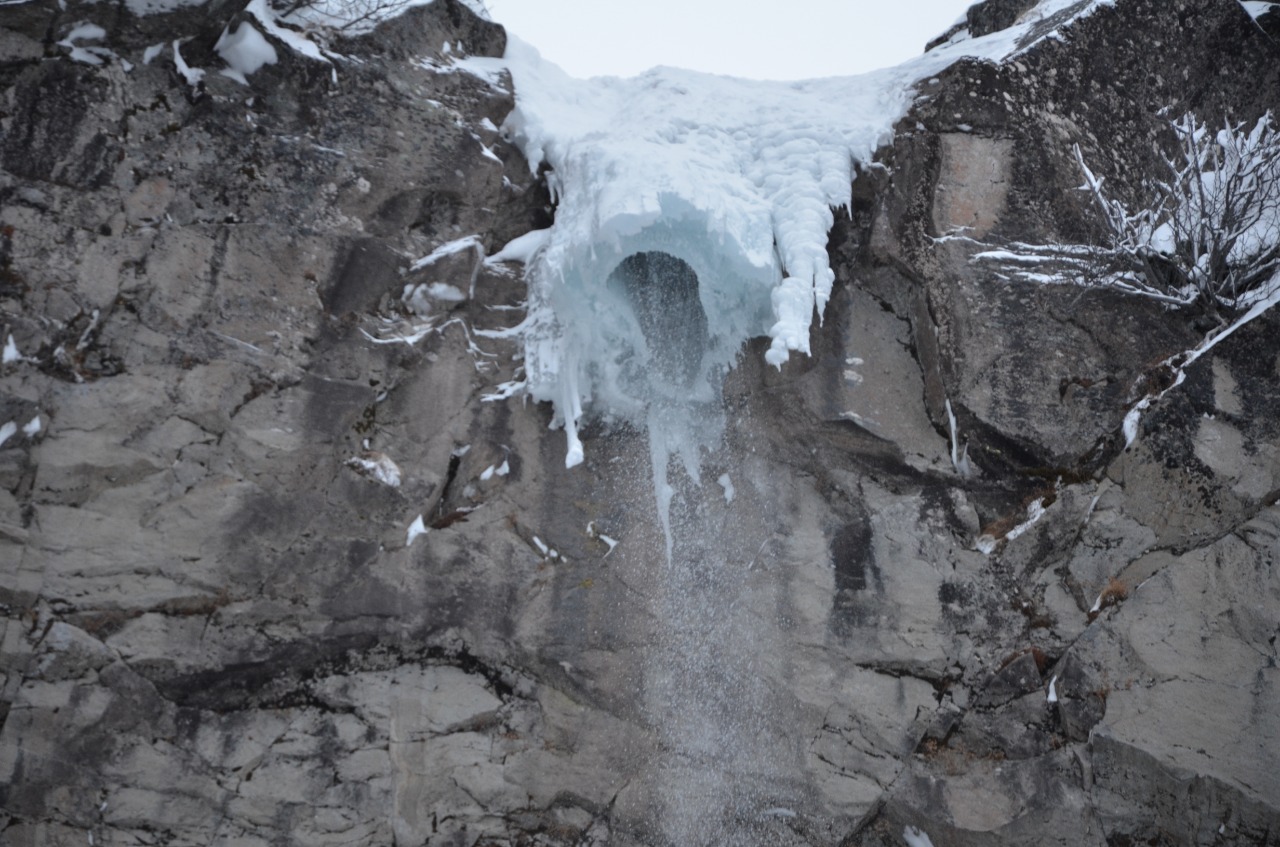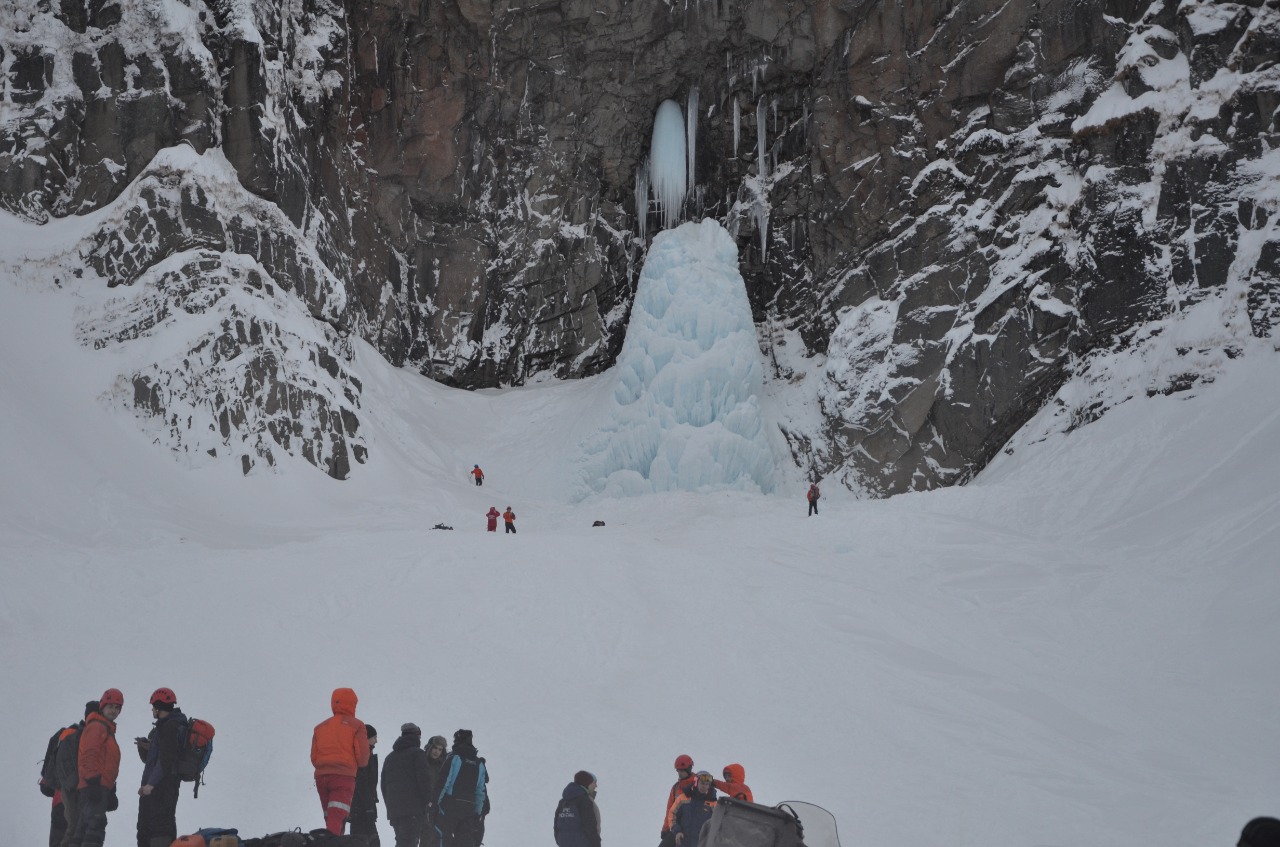Gargantuan 'Tsar Icicle' collapses on tourists in Russia, killing one
The 130-foot-tall waterfall freezes every winter, drawing hundreds of tourists.

Get the world’s most fascinating discoveries delivered straight to your inbox.
You are now subscribed
Your newsletter sign-up was successful
Want to add more newsletters?

Delivered Daily
Daily Newsletter
Sign up for the latest discoveries, groundbreaking research and fascinating breakthroughs that impact you and the wider world direct to your inbox.

Once a week
Life's Little Mysteries
Feed your curiosity with an exclusive mystery every week, solved with science and delivered direct to your inbox before it's seen anywhere else.

Once a week
How It Works
Sign up to our free science & technology newsletter for your weekly fix of fascinating articles, quick quizzes, amazing images, and more

Delivered daily
Space.com Newsletter
Breaking space news, the latest updates on rocket launches, skywatching events and more!

Once a month
Watch This Space
Sign up to our monthly entertainment newsletter to keep up with all our coverage of the latest sci-fi and space movies, tv shows, games and books.

Once a week
Night Sky This Week
Discover this week's must-see night sky events, moon phases, and stunning astrophotos. Sign up for our skywatching newsletter and explore the universe with us!
Join the club
Get full access to premium articles, exclusive features and a growing list of member rewards.
One tourist has died and three others were hospitalized with severe injuries after the collapse of an enormous frozen waterfall in eastern Russia on Thursday (Jan. 7), according to news reports.
The four tourists were among dozens of visitors to Russia's Vilyuchinsky waterfall — a tourist attraction known in winter as the Tsar Icicle — on Thursday. The 130-foot-tall (40 meters) tower of ice collapsed suddenly, trapping the four beneath a sheet of ice for several hours.
More than 40 rescuers flew to the scene by helicopter to dig the trapped tourists free, according to a statement from the Russian Emergency Situations Ministry — but one victim was already dead upon their arrival. The others — including a teenage boy — were promptly evacuated to a hospital with severe injuries.
Related: Trippy 'reverse waterfalls' seen flowing backward
Vilyuchinsky waterfall sits on the Kamchatka peninsula in far eastern Russia. The peninsula is home to around 160 volcanoes, 29 of which are still active. Many are capped with glaciers. As those glaciers melt in warm weather months, their runoff trickles through the mountains, occasionally forming waterfalls like Vilyuchinsky. In winter, when that runoff freezes again, the falls become a towering, frozen monument to the changing seasons. The so-called Tsar Icicle draws hundreds of tourists each winter, according to the Siberian Times.

Right now, no one knows what caused this year's deadly collapse. It's possible that an avalanche from a nearby volcano could have caused an ice block to break loose, according to Russian media reports, but this theory has not been confirmed. An investigation into the accident is underway.
Originally published on Live Science.
Get the world’s most fascinating discoveries delivered straight to your inbox.

Brandon is the space / physics editor at Live Science. With more than 20 years of editorial experience, his writing has appeared in The Washington Post, Reader's Digest, CBS.com, the Richard Dawkins Foundation website and other outlets. He holds a bachelor's degree in creative writing from the University of Arizona, with minors in journalism and media arts. His interests include black holes, asteroids and comets, and the search for extraterrestrial life.
 Live Science Plus
Live Science Plus










